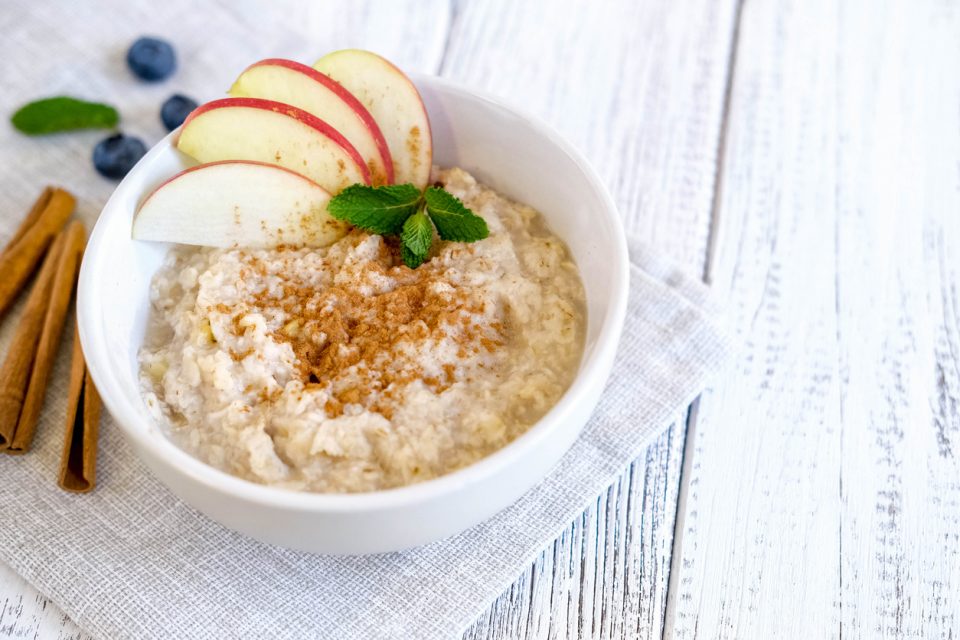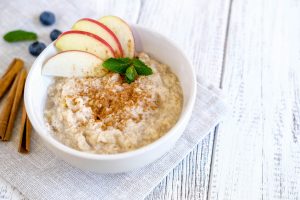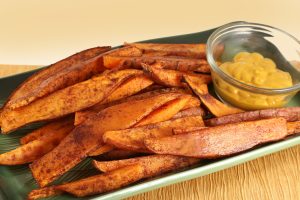By Lindsey Shay | Contributor
Cinnamon is one of my favorite spices and it is incredibly versatile for both sweet and savory recipes. From oatmeal to potatoes – cinnamon adds an extra warmth to most any food. Though, it wasn’t until I began studying nutrition that I realized the numerous health benefits that come from working cinnamon into your diet.
Here are eight evidence-based health benefits of cinnamon*
- Cinnamon is high in a property known to have high medicinal properties.
Cinnamaldehyde, the chemical compound that gives cinnamon its flavor and smell, is proven to be responsible for cinnamon’s positive effect on the health and metabolism of humans.
- It is loaded with antioxidants.
Cinnamon has been proven high, even higher than declared superfoods, in antioxidant properties. Antioxidants can help defend your cells from damage caused by potentially harmful molecules known as free radicals. When free radicals accumulate, they may cause a state known as oxidative stress. This may damage your DNA and other important structures in your cells.
- It has anti-inflammatory properties.
The antioxidants previously mentioned and specifically found in cinnamon have anti-inflammatory effects, which may help lower your risk of disease.
- Cinnamon can reduce the risk of heart disease.
Cinnamon has been linked to reducing the risk of heart disease. It has been scientifically proven to reduce levels of overall cholesterol, lower “bad” LDL cholesterol and triglycerides, and even partially increase “good” HDL cholesterol levels. It has also been shown to reduce blood pressure. All factors that can drastically reduce the risk of heart disease.
- It lowers blood sugar levels and has proven to provide anti-diabetic effects.
Cinnamon has intense blood-sugar-lowering properties. Not only does cinnamon have beneficial effects on insulin resistance, but it also lowers blood sugar through other mechanisms. Cinnamon has been shown to decrease the amount of glucose that enters your bloodstream after a meal by slowing the breakdown of carbohydrates in your digestive tract. It also contains a compound that can mimic insulin which greatly improves the glucose uptake in cells. Research has revealed that cinnamon is capable of lowering blood sugar levels by 10–29%. The most effective dose is typically 1–6 grams or around 0.5–2 teaspoons of cinnamon per day.
- Cinnamon may have beneficial effects on neurodegenerative diseases.
Neurodegenerative diseases are the progressive loss of the structure or function of brain cells.
Alzheimer’s and Parkinson’s disease are two of the most common types. Two compounds found in cinnamon appear to inhibit the buildup of a protein in the brain which is one of the hallmarks of neurodegenerative disease.
- It may help protect against cancer.
Cinnamon has been widely researched for its potential use in cancer prevention and treatment. Research suggests that cinnamon extracts may protect against cancer by reducing the growth of cancer cells and the formation of blood vessels in tumors and appears to be toxic to cancer cells, causing cell death.
- Cinnamon has bacteria and infection fighting capabilities.
Cinnamaldehyde, one of the main active compounds found in cinnamon, may help fight various kinds of infection. Cinnamon oil has been shown to effectively treat respiratory tract infections caused by fungi and can also inhibit the growth of certain bacteria, including Listeria and Salmonella. The antimicrobial effects of cinnamon may also help prevent tooth decay and reduce bad breath.
There are different kinds of cinnamon: Ceylon and Cassia. For the greatest health benefits, Ceylon, also known as “True Cinnamon,” is the best option.
*As with adding anything to your daily diet, be sure to talk to your physician first.
Editor’s Note: This content is not intended to be a substitute for professional medical advice, diagnosis, or treatment, and does not constitute medical or other professional advice.
Here are a few of my self-curated and family-tested favorite recipes that include cinnamon
Cinnamon Roll Overnight Oats
Ingredients:
- 2 1/2 cups old-fashioned rolled oats
- 2 1/2 cups milk (I use oat milk!)
- 6 teaspoons Truvia brown sugar
- 1 ½ teaspoons vanilla extract
- 1 ¼ teaspoons ground Ceylon cinnamon
- ½ teaspoon salt
Directions:
- Stir oats, milk, brown sugar, vanilla, cinnamon and salt together in a large bowl. Divide among five 8-ounce jars. Screw on lids and refrigerate overnight or for up to 5 days.
Cinnamon Bread
Ingredients:
- 2 cups granulated sugar
- 4 cups all-purpose flour
- 2 tablespoons baking powder
- 1 teaspoon salt
- 2 eggs
- 2 cups fat-free milk
- 1 ½ tablespoon cinnamon
Directions:
- Preheat oven to 350 F. Spray 2 1-lb loaf pans generously with baking spray.
- In a bowl, combine the sugar, flour, baking powder, and salt. Set aside.
- With a mixer, beat together eggs and milk.
- Gradually add the dry mixture to the wet until just combined.
- Pour mixture evenly into pans. Sprinkle cinnamon (or a cinnamon sugar mixture) on top before putting into oven.
- Bake for 45-50 minutes, or until a toothpick inserted into the center of the loaf comes out clean.
Cinnamon Paprika Sweet Potato (Baked) Fries
Ingredients:
- 3 medium-large sweet potatoes
- ½ tablespoon olive oil
- 1 tablespoon smoked paprika
- 1 1/2 teaspoon cinnamon
- Salt, to taste
Directions:
- Preheat oven to 350 F and line a baking sheet with parchment paper.
- Wash the sweet potatoes well and pat dry. Slice thinly into fries or cubes if you’d prefer.
- Place sliced sweet potato in a large bowl. Add in the oil, smoked paprika, cinnamon, and salt. Toss to combine until thoroughly coated in the spices.
- Spread the fries out on the baking tray. Bake for approximately 40 minutes or until crispy.
*Sources:
www.Health.ClevelandClinic.org
www.Healthline.com
www.Health.Harvard.edu





